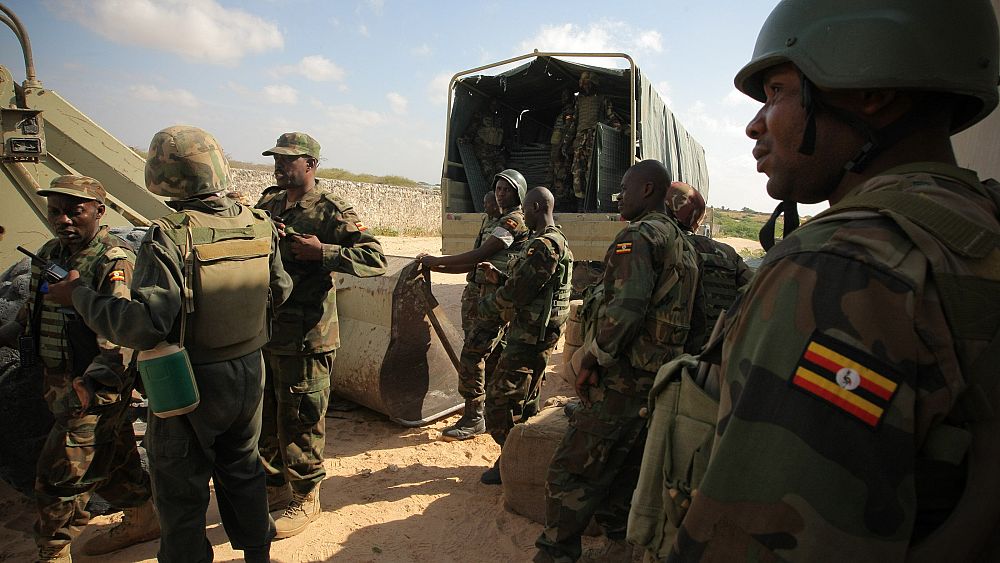
The expulsion this week of the French ambassador from Mali has increased tensions between the two countries.
But these difficulties go beyond the simple bilateral framework between Paris and its former colony — they also affect the EU.
Last month, the military junta, in power after two coups in 2020 and 2021, denounced the deployment of Danish forces as part of the European Takuba mission.
Faced with the junta’s hostility, Copenhagen preferred to withdraw its soldiers present on the ground.
Now, Bamako’s position raises questions about the future of European intervention in the country and, more broadly, in the Sahel.
What is the Takuba task force?
Takuba was set up in March 2020. It is a coalition of European forces engaged in accompanying the Malian army. On paper, its objective is to eventually replace the French operation Barkhane, which was created in 2014 following the French military intervention in January 2013 to stop the jihadist advance in Mali.
It is currently led by the Swedish Colonel P or Peder — whose full name is not used for security reasons — and relies on 14 countries (Belgium, Czech Republic, Denmark, Estonia, France, Germany, Greece, Italy, Netherlands, Norway, Portugal, Romania, Sweden, United Kingdom).
Takuba carries the European flag, but the forces and military means of this force are mainly French. The operation has nearly 800 soldiers, a little less than half of which are from Paris.
But Takuba goes beyond a simple strategic question. This mission also represents the desire of Paris to involve its European partners in the fight against terrorism in the Sahel.
An embryo of a European force
For French president Emmanuel Macron, the Takuba task force is also the beginning of a European special intervention force — an outfit that would be able to make decisions more quickly. In the eyes of Paris, Takuba can serve as a reference for the defence and security of the EU.
“It is a precursor, but a very French precursor,” said Jean-Pierre Maulny, deputy director of the Institute for International and Strategic Relations (IRIS). “France has involved its European partners and it must keep its partners informed of the decisions to be taken,” he added.
Takuba relies on the confidence of member states in Paris, and the junta has struck at a weak point of the European system. With the questioning of the deployment of European forces, Bamako “does not affect Paris directly, but it weakens France in the face of its European partners,” said Maulny.
Sweden, Estonia and the Czech Republic participate in Takuba by sending special forces, a few dozen soldiers. Italy is also present, but more through the presence of logistical assistance.
In addition to the difficulties between France and Mali, Bamako uses Russian mercenaries from the Wagner group. This new foreign presence changes the geopolitical relationship.
Under these conditions, some capitals may be even more hesitant to send reinforcements. Sweden, for its part, has already announced its withdrawal from Takuba later this year.
Is there a future for Takuba?
An outright withdrawal of French forces does not seem to be an option. With the French presidential election approaching, this would be the worst scenario for the outgoing head of state. Moreover, “it would pose problems for our European partners,” said Maulny.
“On the other hand, one could imagine a reformatting of this mission near the tri-border area (Mali, Niger, Burkina Faso) but not in Mali.”
“I think that the future should be assistance in combat, but not intervention in combat directly,” he added.
For Belgian MEP Maria Arena (S&D), European external operations cannot work if it is “only a military presence, that is not enough. It is not the only solution”.
The Belgian parliamentarian stressed that if the Sahel countries ask for support “in the fight against crime and jihadism yes we need European help.” Still, she added that these forces must come to the aid of “the whole population.”
For the time being, Paris can count on the support of the EU. “The European Union, which is fully committed to peace and stability in the Sahel, at the request of States and in support of the population, expresses its support and solidarity with France,” wrote the head of European diplomacy Josep Borrell in a statement.
The 27 member states should also approve sanctions against several members of the Malian military junta soon.